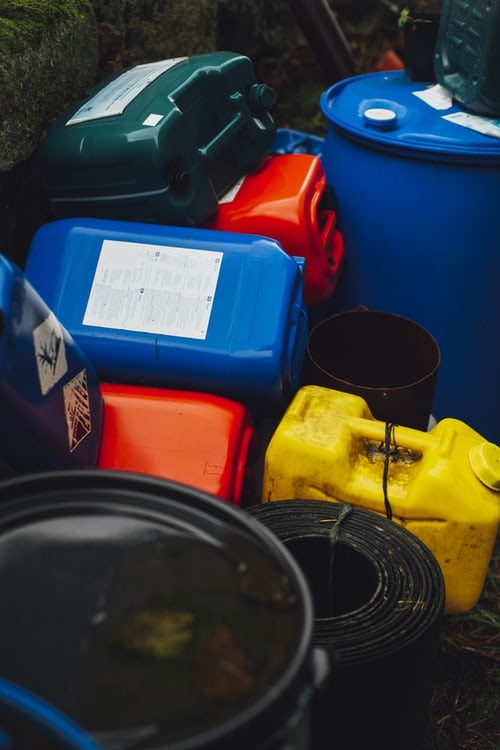Economical and Effective Microbial Treatment for Oil-Contaminated Wastewater: Two Case Studies Demonstrating Significant Enhancement in Bioreactor Efficiency!
Facing the challenging issue of high COD (Chemical Oxygen Demand) in oily wastewater,
one effective solution is the use of hydrocarbon-degrading bacteria (microbial treatment agents).
Various industries such as mechanical machining, acid pickling and phosphating wastewater, slaughterhouse wastewater, food processing wastewater, and petrochemical industries generate significant amounts of oily wastewater. The composition of oily wastewater can vary between different industries. Treatment methods for oily wastewater typically involve physical-chemical processes, biological treatment, and chemical methods. Among these, biological treatment is a preferred method as it reduces the volume of pollutants and transforms oil and COD into water and carbon dioxide, making it an environmentally friendly approach.
Biological treatment is widely used in domestic wastewater treatment and industrial wastewater treatment with good biodegradability. However, it may not be as effective for industrial oily wastewater with poor biodegradability.
For challenging, poorly biodegradable oily industrial wastewater, hydrocarbon-degrading bacteria (microbial treatment agents) can be employed. These bacteria are naturally occurring aerobic bacteria selected specifically for treating oily wastewater. They have the ability to remediate different carbon chains found in crude oil, petroleum products, and paraffin. Due to the inclusion of multiple bacterial strains, they are effective in degrading both low and high carbon chain hydrocarbons.
Key features of these hydrocarbon-degrading bacteria (microbial treatment agents) include:
1. Specifically selected microorganisms for treating oily wastewater.
2. Strong temperature adaptability, functioning effectively within a range of 20-45°C.
3. Strong pH adaptability, operating well within a pH range of 5.5-8.5.
4. Non-toxic, non-hazardous, and non-pathogenic to both biology and the environment.
5. Non-genetically modified strains, naturally occurring in the environment.
6. Contain specialized oxidation enzymes.
7. Excellent interaction with oily wastewater for effective treatment.
8. Can also be used for bioremediation of contaminated soil.
Case study 1: Large Car Wash Facility

Background:
A specialized business focused on cleaning large car wash facilities was facing a significant challenge due to the generation of large volumes of oil-contaminated wastewater during their cleaning processes. This issue resulted in the need to pay substantial discharge fees and, in some cases, substantial fines each year.
Treatment Approach:
To address this challenge, the company adopted a wastewater treatment approach that involved the use of hydrocarbon-degrading bacteria (microbial treatment agents) within containment tanks equipped with pH control and continuous aeration. The process included the following steps:
- pH Control: The pH of the oil-contaminated wastewater was controlled to create an optimal environment for the hydrocarbon-degrading bacteria.
- Introduction of Microbial Treatment Agents: Hydrocarbon-degrading bacteria were introduced into the containment tanks. These bacteria had been specially selected for their ability to efficiently break down oil and hydrocarbons.
- Conditioning and Reaction Time: The contaminated wastewater was allowed to undergo a conditioning period within the tanks, allowing the microbial treatment agents time to interact with and degrade the oil and hydrocarbons present.
Results:
The implementation of this wastewater treatment approach yielded significant and positive results:
- Complete Degradation: The hydrocarbon-degrading bacteria effectively degraded the oil and hydrocarbons in the wastewater, resulting in a substantial reduction in oil content.
- Wastewater Recovery: The treated wastewater was not only free from oil but also met the required discharge standards, allowing it to be safely recycled or discharged without the need for additional discharge fees.
- Cost Savings: By eliminating the need to pay high discharge fees and fines, the specialized car wash cleaning business achieved substantial cost savings, making their operations more financially sustainable.
- Environmental Benefits: This treatment approach was environmentally friendly, as it reduced the environmental impact associated with the disposal of oil-contaminated wastewater.
Case study 2 : Organic Solvent Recovery Company

Background:
This solvent recovery company deals with a large and complex volume of solvents, resulting in high COD concentrations in the oily wastewater. Their in-house treatment process could only bring down the COD to a minimum of 600-700 mg/L.
Treatment Approach:
To address the challenge of high COD in the complex oily wastewater, the company introduced hydrocarbon-degrading bacteria (microbial treatment agents) into their existing biological treatment unit. The process involved acclimation and reaction time for the microbial treatment agents.
Results:
Upon the initial introduction of hydrocarbon-degrading bacteria (microbial treatment agents) into their biological treatment unit, the organic solvent recovery company witnessed a significant improvement in their ability to treat high COD oily wastewater. Their previous capacity, which allowed treatment down to 600-700 mg/L, was enhanced, and they were now capable of treating wastewater with COD levels as high as 180 mg/L.

Facing difficult-to-treat oily wastewater or high COD concentrations? Why not leave it to hydrocarbon-degrading bacteria for treatment!
CONTACT US
Kelly Chemical Corporation
Electronics
TEL:(02)2762-1985 ext 11200
Online Message
Leave your contact information,
and we will get in touch with you soon.
Email Consultation
After receiving your email,
we will process it as soon as possible.send Email